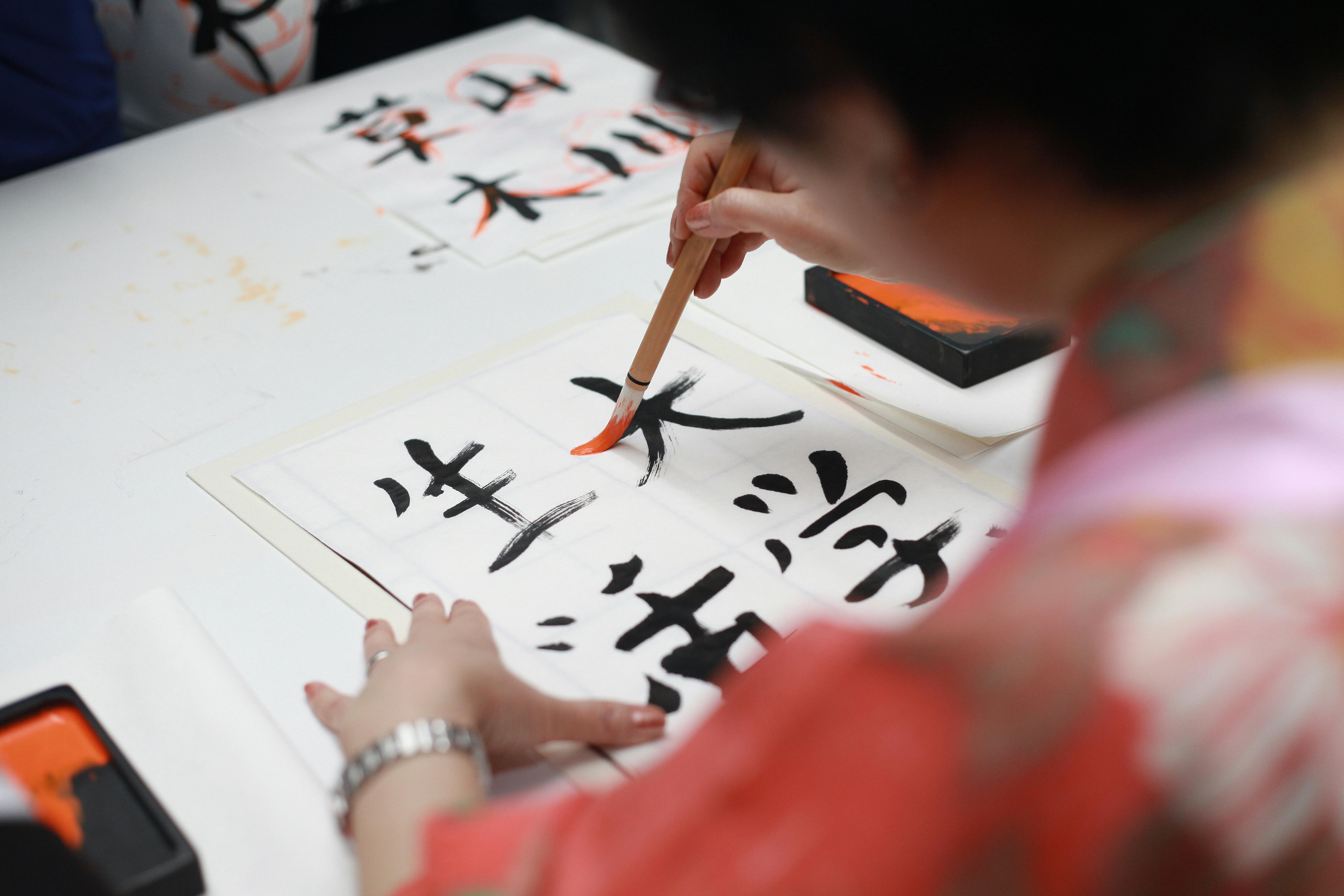
10 Greatest Benefits of Learning Japanese to Motivate Your Learning Journey
For some, Japan is all about anime, manga, samurai, geisha, sushi, game shows, Hello Kitty, Harajuku and kawaii.
But you (and all those other Japanese learners) know there’s more to Japan than those pop culture aspects its most known for. In fact, over 3.7 million people around the world are studying Japanese right now for various reasons.
So to get you even more excited and motivated to keep going with the language, we’ve compiled 10 of the greatest benefits of learning Japanese.
Contents
- 1. You’ll Understand Japanese Culture Better
- 2. You’ll Check the Box of Learning an “Impossible Language”
- 3. Unlocking a Notoriously Tough Job Market
- 4. Develop a Second Perspective and Think Differently
- 5. Drinking the Night Away with Your Friends and Colleagues
- 6. Going Deeper into Japanese Hobbies
- 7. Learning Kanji Helps Immensely with Learning Chinese
- 8. Traveling to Japan Is Way Easier and Deeper
- 9. Learning Japanese Boosts Your Brain Function and Memory
- 10. Japanese Improves Your Spatial And Interpretive Skills
- And One More Thing...
Download: This blog post is available as a convenient and portable PDF that you can take anywhere. Click here to get a copy. (Download)
1. You’ll Understand Japanese Culture Better

Probably one of the most common questions on the internet is often asked by bewildered kids faced with outrageous, out-of-context GIFs that defy their frame of reference: “Why is Japan so weird?” The key phrase to help in answering this is the aforementioned out-of-context!
Sure, it may be tempting to believe the snippets of “culture” that for some reason turn up in reputable newspapers: that Japanese people are pervs with scary subcultures, and that when they’re not wearing the ubiquitous black business suit, they’re wearing fundoshi. It’s become something of a point of agreement that Japan is incomprehensibly bonkers.
But the age-old wisdom is that to even begin to understand a culture, you have to understand the language. And to understand the language, you must understand the history. Japan is a mountainous island which historically closed its doors for 200 years and developed a culture so removed from Western conceptions of society that it may cause a deeper 分からない (わからない – I don’t get it!) factor than we’re used to.
And there is a lot of cultural context to wade through. Consider this, though: Would you want to wrap all your country’s Honey Boo Boos and Jersey Shores into a greasy Taco Bell box and ship it off to Japan as an ambassador? All I’m saying is that perhaps because of the frighteningly unfamiliar characters and the uncertain context of these game show GIFs, we tend to throw Japan into a particularly harsh light. Because really, if all we’re analyzing are GIFs from an already ridiculous concept for a show, how is this any different from Johnny Knoxville?
If interested, this article goes into the overgeneralization a bit in an interesting switch-around.
2. You’ll Check the Box of Learning an “Impossible Language”

We’ve all heard it, and though we might grudgingly admit we’ve said it ourselves, we know that those intimidating Asian languages are not, in fact, truly impossible. Let’s get back to those “frighteningly unfamiliar characters.” Faced with a written language that uses pictures instead of roman lettering already throws you for a loop, in that you have no reference from which to draw the phonetic pronunciation.
With Japanese, you’re both in luck and in for some troubles. I’ll give you the bad news first: Unlike Chinese, Japanese kanji does not have just one phonetic pronunciation per character—so settle in for a lot of familiarization time. However, the good news is that the phonetic sounds all fall pretty much within the range of sounds that we make in the English language, and there isn’t a whole lot of variation in tone.
Long story short? No tones. Less languid in rhythm, it’s more like playing the drums than playing the violin.
With that as a bit of a leg-up into the learning process, it’s also worth taking into account the admirable amount of discipline and persistence that comes with learning such a different language. There are a lot of people who would give up at the first sign of trouble. But you aren’t the kind of person who gives up that easily. When you’re faced with difficulty, you reiterate your desired outcomes, recognize that improvement is an ongoing process and you soldier on.
Japanese teaches you that although it’s tricky, there is value in improving yourself continuously. This goes for any difficult pursuit: Learn this, and you can learn anything. Added bonus? Mandarin having lent a lot of characters to Japanese, and Korean having just 40 letters in its alphabet, other Asian languages are going to look less like Everest after this one!
And with how far we’ve come along in technology, specifically in the education sector, “difficult” languages like Japanese are more accessible than ever. From language exchange platforms like Tandem to online immersion programs like FluentU, more and more people are able to effectively communicate with natives, regardless if they’re actually in Japan or not.
FluentU takes authentic videos—like music videos, movie trailers, news and inspiring talks—and turns them into personalized language learning lessons.
You can try FluentU for free for 2 weeks. Check out the website or download the iOS app or Android app.
P.S. Click here to take advantage of our current sale! (Expires at the end of this month.)

3. Unlocking a Notoriously Tough Job Market

Let’s talk about this from two angles. First angle: Ever tried inputting business-level Japanese into Google translate? What comes out is often hilariously inaccurate gibberish. While that may be good for a solitary laugh or two (while onlookers watch you fearfully), this is immensely indicative of the level of free translation software nowadays.
In my opinion, the software often fails to be able to translate the nuances which are not directly translatable into English, and especially has trouble with differences in syntax. Observe:
お好み焼きやすき焼きは、人数がいた方が食べやすいね。(おこのみやきや すきやきは、にんずうが いたほうが たべやすいね。)
Looks like this in English:
Okonomiyaki and sukiyaki, I is easy to eat those who had a number of people.
Unless you’re feeling cannibalistic and are likely to eat humans who have already consumed a number of people, aided by the power of two popular Japanese dishes, then I trust you will never be able to use this sentence in English.
The more accurate translation is as follows:
I guess okonomiyaki and sukiyaki are easier to eat with a lot of people, aren’t they?
Now this lack of reliable translation software is a mild inconvenience if you’re traveling, but what if you’re trying to get through a high-stakes business transaction? If you can manage to successfully manipulate Japanese into the very different syntax of English or any other language with Jenga-master-like proficiency, you’ve got yourself a job. Throw in a little business acumen and you could apply to any translation company.
The second angle: Japan has for a long time been a very challenging place to do business. Whether it’s directors trying to film there, a fast-food company trying to open a chain there or salespeople trying to navigate the subtle communication practices of Japanese culture, the different laws, bureaucracy and language make things complicated.
If you’re hoping to move to Japan and don’t want to go the English teacher route, then study up on your Japanese industry jargon and try your luck in pharmaceuticals or electronics manufacturing!
4. Develop a Second Perspective and Think Differently

Ask anyone who knows several languages and they’ll tell you: Sometimes certain things are just expressed better when they’re not in English. You’ll find there are words in Japanese with a totally different flavor than their English counterparts—if there is a counterpart at all.
Take a few classic examples:
a. 懐かしい (なつかしい) – something that causes nostalgia/ “brings back memories”
例 (れい – example):
おー!この曲は何年ぶりかな?懐かしいなぁ... (おー!このきょくは なんねんぶり かな?なつかしいなあ...)
(Wow! How many years has it been since I’ve heard this song? It really takes me back…)
This word is everywhere. Everyone uses it, and it’s a simple word that allows you to express that something was precious to you—or that you’re recalling “the good old days,” whenever and wherever those days may be!
b. めんどくさい – (a tad crude) way to say something is “a pain”
例 :
あー、みんな一人一人を呼ぶのはめんどくさいな... (あー、みんな ひとりひとりをよぶのは めんどくさいな...)
(Man, calling everyone individually is such a pain!)
This is a great way to remark on something that would be tiresome, annoying or otherwise tedious to have to do. In English, you may have expressed this sentiment with an “Aaargh…“
For other fun ways to express difficult-to-describe emotions, bask in the wonders of Japanese emotional onomatopoeia. Ever felt like you’re frustrated because of unidentified feelings and didn’t know how to describe this obscurity? もやもや. Done.
Basically, the cool part is this: Imagine your pre-Japanese mind as a one-track train. It’s plowing along on its familiar path, taking in the familiar scenery and making connections between things it’s been seeing all its life. This is how you make sense of the world.
But imagine that suddenly, you pull a lever (i.e. start learning Japanese) and you switch tracks into an area you’ve never seen before. Suddenly things that used to make sense look a little different from this perspective; you’ve got new information with which to process things you’ve known all your life. And it changes your opinion. You can switch back and forth from track to track, but now your view of the world has expanded!
In addition, as a detour from the emphasis placed on extroversion and outwardly expressing opinions in North America, Japanese people tend to place a greater emphasis on cooperation, agreement and also silence. Aren’t one to throw your opinion around? Like to express things more ambiguously and invite agreement/polite doubt in conversation? Japanese is the language for you.
5. Drinking the Night Away with Your Friends and Colleagues

All right, so I’m going to be contested on the validity of this benefit, but I do mean literally. If it’s your thing, one of the awesome parts about learning Japanese is the all-in culture of drinking in Japan. From the cathartic rush of the first お疲れビール (おつかれびーる — “good work” beer) after a tough day, to the “end of the night” when you occasionally emerge from the dark karaoke booth into blazing sunlight, drinking can be a bit of a long-haul.
There’s nothing like the camaraderie of drinking buddies, when polite -ます forms of speaking are dropped and you can try out some of the more fun slang you’ve learned. If you’ve been stuck in a textbook, this is your playground!
Aside from the good old-fashioned fun, for many, drinking is a way to get past the firm, conservative/professional demeanor during working hours to the more relaxed, outgoing and inhibition-less “buddy” after hours. This is often regarded as a valuable part of business: a chance to let your client, your coworker, your boss, tell you what’s really going through their mind regarding that business proposal, and for you to reciprocate if it’s fitting to do so.
Plus, you get to play with a whole other world of terrifying drinking games.
A word of responsibility: Don’t get pulled into having too much fun… the peer pressure is insane.
6. Going Deeper into Japanese Hobbies

Learning Japanese can significantly enhance your already excellent understanding and enjoyment of Japanese hobbies like martial arts and anime.
By grasping the language, you gain insight into cultural nuances, access original content directly, communicate more effectively with peers and enjoy anime in its original form, capturing subtleties often lost in translation. The same goes for martial arts like karate. When you know Japanese, you can study karate in its original form, with its original language, which is pretty powerful if you think about it.
Furthermore, learning Japanese opens doors to untranslated resources and deepens appreciation for Japanese culture overall, enriching your experiences within these hobbies.
7. Learning Kanji Helps Immensely with Learning Chinese

Learning Kanji can really speed up the process of learning Chinese because it gives you a strong foundation in Chinese characters, which are similar between the two languages. Once you’ve mastered Kanji, you’ve already got a head start on understanding Chinese characters’ meanings, how they’re put together and how to write them.
If you think about it, this is a way to make the most of all that kanji learning time.
The familiarity with kanji makes it much easier to pick up writing Chinese characters. To me, one of the most interesting parts about this is seeing and understanding the language connections between Japanese and Chinese culture and language. You’d be surprised how connected the two cultures are, even though they’re also very different from one another.
8. Traveling to Japan Is Way Easier and Deeper

Learning Japanese can truly transform your travel experiences in Japan. Imagine strolling through vibrant streets, confidently striking up conversations with locals and effortlessly ordering delicious meals at hidden gems. Sounds like a dream to me.
Speaking Japanese opens doors to authentic connections and cultural insights that guidebooks can’t provide.
From navigating bustling Tokyo and Osaka to immersing yourself in tranquil countryside retreats, knowing the language enriches every aspect of your journey, turning ordinary moments into unforgettable adventures.
So, pack your bags, brush up on your Japanese and get ready for a travel experience that goes beyond the tourist trail, unlocking the heart and soul of Japan along the way.
9. Learning Japanese Boosts Your Brain Function and Memory

Learning Japanese is like giving your brain a supercharged boost. Think of it as a workout routine for your mind. As you tackle the twists and turns of grammar, the intricate strokes of kanji characters and the rhythm of conversation, your brain is firing on all cylinders, getting stronger with every new word and phrase. And the best part?
It’s not just about language—learning Japanese sharpens your problem-solving skills, amps up your multitasking abilities and fine-tunes your decision-making prowess. This kind of brain workout is the sort of exercise that helps your brain stay young and pliable well into old age.
So, while you’re immersing yourself in the beauty of Japanese culture, you’re also giving your brain the ultimate treat, setting yourself up for success in all sorts of adventures, both in Japan and beyond!
10. Japanese Improves Your Spatial And Interpretive Skills

When you learn Japanese, you’re not just picking up new words and phrases. As you delve into Kanji characters, your mind gets a workout figuring out their meanings and shapes, like solving puzzles.
Research has shown that people who study languages with written characters rather than solely phonetic letters improve their spatial reasoning and visual interpretation.
And when you tackle Japanese grammar, your brain learns to interpret and understand new situations, sharpening your problem-solving skills and giving you a fresh perspective.
So, whether you’re reading manga or exploring Tokyo, learning Japanese isn’t just about the language—it opens up a new way of analyzing the world around you.
If any of these reasons strike a chord in you, and I sincerely hope they do, then let’s go. That train to a different perspective on life is moving, and there’s every reason to just jump on—whether it takes you to tolerance, personal achievement, money, mind expansion or a 居酒屋 (いざかや — drinking tavern).
Download: This blog post is available as a convenient and portable PDF that you can take anywhere. Click here to get a copy. (Download)
And One More Thing...
If you love learning Japanese with authentic materials, then I should also tell you more about FluentU.
FluentU naturally and gradually eases you into learning Japanese language and culture. You'll learn real Japanese as it's spoken in real life.
FluentU has a broad range of contemporary videos as you'll see below:

FluentU makes these native Japanese videos approachable through interactive transcripts. Tap on any word to look it up instantly.

All definitions have multiple examples, and they're written for Japanese learners like you. Tap to add words you'd like to review to a vocab list.

And FluentU has a learn mode which turns every video into a language learning lesson. You can always swipe left or right to see more examples.

The best part? FluentU keeps track of your vocabulary, and gives you extra practice with difficult words. It'll even remind you when it’s time to review what you’ve learned. You'll have a 100% personalized experience.
Start using the FluentU website on your computer or tablet or, better yet, download the FluentU app from the iTunes or Google Play store. Click here to take advantage of our current sale! (Expires at the end of this month.)


